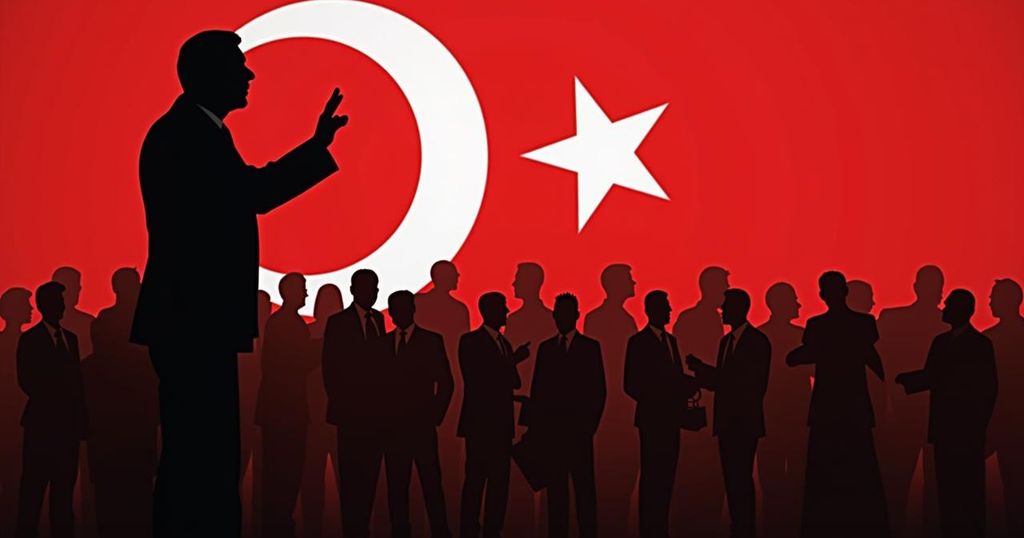Tunisia is set to vote in a presidential election on Sunday, which experts and critics claim will be neither fair nor free. The election marks a potential end to the country’s democratic transition post-Arab Spring as President Kais Saied consolidates power. Many opposition candidates have been disqualified or imprisoned, casting doubt on the election’s legitimacy. Observers note that this election starkly contrasts with previous ones, indicating a worrying shift towards authoritarianism under Saied’s rule.
Tunisia is holding a presidential election on Sunday, amidst widespread skepticism regarding its fairness and freedom. Critics and experts believe that the election represents a significant decline in the country’s democratic progress, which had momentarily flourished following the Arab Spring in 2011. Despite the initial promise of political reform, the current climate reflects a troubling move toward autocracy, with President Kais Saied effectively consolidating power since his election in 2019. Saied, a former constitutional law professor, first gained office amidst widespread public disillusionment with the existing political parties. However, his subsequent actions have led observers to characterize his regime as increasingly authoritarian. \n \nIn July 2021, Saied effectively staged a self-coup, dismissing the prime minister and suspending parliament, thereafter asserting the right to govern by decree. Since then, he has enacted a new constitution diminishing judicial independence and stifling legislative powers. The preceding voter apathy during the 2022 constitutional referendum is indicative of public disengagement with the political process under his rule. Currently, as he seeks a second term, the election appears heavily tilted in his favor, with numerous challengers disqualified or imprisoned, effectively eliminating any serious competition. \n \nAccording to analysis by Sarah Yerkes of Carnegie’s Middle East Program, while superficially resembling a democratic election, deeper scrutiny reveals an absence of genuine competition. Many would-be candidates have either been jailed or barred from participation, raising serious questions about the integrity of the electoral process. An example includes Ayachi Zammel, who although initially cleared to run, was later detained, highlighting the precarious position of opposition figures in the country. Amidst this political repression, supporters of the opposition continue to rally, with some publicly stating their intent to vote against Saied despite the overwhelming odds.
Tunisia’s political landscape bears the weight of a complicated history woven through socialist transitions and democratic aspirations. Following the Arab Spring, Tunisia initially showed signs of a vibrant democracy; however, the subsequent years have seen power increasingly centralized under the president. The aforementioned dynamics have significantly distorted the electoral framework, suggesting an alarming regression from the democratic ethos that characterized the earlier years of post-revolution politics. As the country grapples with economic hardships, a significant faction of the populace contends that a singular, decisive leadership is necessary, inadvertently supporting Saied’s consolidation of authority. Moreover, the recent amendments to electoral laws serve to further entrench his powers, culminating in an electoral environment devoid of real democratic discourse.
In conclusion, the upcoming presidential election in Tunisia unfolds under the shadow of disillusionment and repression. Observers note that both its structure and the preceding actions of President Kais Saied exacerbate concerns regarding the election’s probity. With most candidates eliminated from contention, and dissent harshly suppressed, the vote is anticipated to reinforce the current regime rather than yield authentic democratic engagement. As such, this election may well symbolize the final diminished flicker of democracy in Tunisia, whose earlier aspirations now face a profound crisis of representation.
Original Source: www.washingtonpost.com






